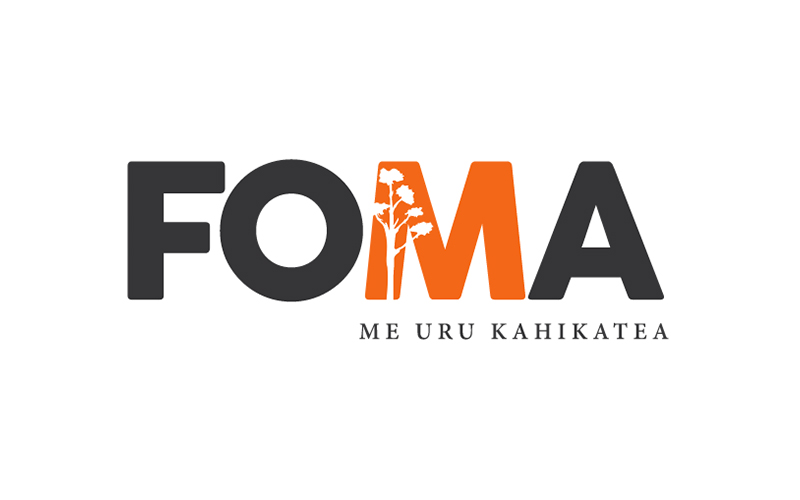General Items:
Statistics NZ Review Released:
- Statistics NZ (Stats NZ) has quietly uploaded a report to its website which reviewed the department’s policies and processes as they pertain to political neutrality. The context being that the review was commissioned after a (now former) staff member of the department spoke on the paepae at Rātana Pā this year, and in strong language, harshly criticised the Government.[1] For example, in Te Reo , he called Deputy Prime Minister Winston Peters and Shane Jones taurekareha (lackeys / slaves), suggested Minister Jones had turned his back on Māori, and that ACT party ministers had stayed away to lick their own a**. At the time, Minister Jones responded forcefully, saying that he would make that person ‘eat his words’.
- What transpired in an official sense was the review, which found the former employee’s comments “represented a conflict of interest with the employee’s official Stats NZ role at the event, which requires public servants to remain politically neutral.” The review also found expectations of political neutrality were made clear to the person in advance of events at Rātana Pā, but that nevertheless there is scope for Stats NZ to improve its management of employee conflicts of interest.
- Our assessment is fourfold. First, perfectly understandable and correct that public servants ought not to insult Ministers (or anyone else) when making speeches, whether in Te Reo or English, and regardless of the setting. Serving the Government of the day is a basic requirement of the job, and the review correctly points this out.
- That said, and second, whether a whole departmental policy and procedural review was really needed is questionable: it reads as somewhat over the top, and we wondered whether it was done just to appease Ministers. In short, one public servant spoke rudely about Ministers, that was all. With this, as Winston Peters himself noted last week, politicians get called lots of names, hence was there scope for a moderate performance correction? e., did this person resign / get dismissed just because Minister Jones indicated he would seek revenge, or was the conduct really beyond redemption? Stats NZ has not given sufficient clarity in that regard.
- Third, and more problematic, is the broader context. In our view the report does not sufficiently discuss the ongoing dilemmas around cultural responsibly and public service that Māori public servants can face. In this case, for example, the potential dilemma of turning down an invitation to speak on a paepae, and whether that might be viewed as a slight on the hosts is not discussed, nor whether paepae kōrero is actually about speaking on behalf of others, not as an individual per se. e. perhaps if more moderate language had been used, and the speaker had better clarified that he considered these were the views of the people (not necessarily his own) then the outcome here might have been different. I.e. the cultural dimensions to this situation read as not being well understood, despite Te Arawhiti contributing to this report.
- Fourth, beyond this situation, the report identifies, and we agree, that such cultural challenges are presenting for public servants at this time. We note, for example, the difficulties Māori public servants faced in seeking to explain the Government’s English first policy position to the Waitangi Tribunal in May (Pānui 18/2024 refers).
- We also consider more challenges for Māori public servants will arise with the introduction of the proposed Treaty of Waitangi Principles Bill. Will Māori public servants be allowed to sign petitions against this bill, write submissions, or join marches against it? (In their own time of course.) Or if Prime Minister Luxon and Minister Potaka are allowed to call this proposed bill ‘divisive’ and ‘unhelpful’, can public servants now use those same words in their work? Be good to know in advance to avoid anyone else becoming unstuck. e. has the Public Service Commission learnt anything from events at Rātana and will guidance be issued? Last, politicians are sometimes quick to embrace the cultural support of Māori public servants when needed – for example Te Puni Kōkiri staff often perform waiata for Government events (like on Tuesday in celebration of 100 years of the Office of the Māori Trustee); that being the case can politicians accept that outside of the office Māori public servants are Māori citizens as well? The report on events at Rātana and Stats NZ policies is here:
Conflict of interest review | Stats NZ
Iwi Chairs Forum:
- Last week Ngāti Whātua Ōrākei hosted the Iwi Chairs Forum (ICF) in Auckland, an aspect of which includes meeting with Ministers and officials. Many / all iwi forum members have strong concerns about the Government’s approach to Māori wellbeing and its policy work programme. Some items of concern include the upcoming Treaty Principles Bill, changes to Oranga Tamariki legislation, changes to local government legislation (Māori ward referenda) and the proposed overturning of an Appeal Court ruling relating to the customary title tests regarding the foreshore.[2] Our understanding is that the forum has gone so far now as to formally consider uninviting / suspending the Government from future hui, although Prime Minister Luxon had a different sense of matters, describing the most recent meeting as ‘positive’, ‘robust’ and ‘honest dialogue’.
- In our view, unengaging with the Crown makes little sense if iwi seek for Te Tiriti o Waitangi to be a living and active partnership. e. regardless of whether the Crown is seen as a good or bad Tiriti partner, maintaining partnership necessarily requires ongoing engagements. Below are some extracts of the published speech delivered at the meeting from Marama Royal, Chair of Ngāti Whātua Ōrākei (host iwi). The full speech as published on the internet is included in Appendix one.
“This hui has come at a time of great hurt, frustration and sense of despair for many of the hundreds of thousands of iwi Māori that this forum collectively represents. … The feeling from iwi Maori is that we are being ignored, which dominated our kōrero yesterday among the iwi leaders.
We must ask the question, where to from here, if our voice and our expectations continue to be ignored? This is not how partnership works. This is not underpinned by tika pono me te aroha. This feels very personal and targeted against Māori, and the expectations of those in this room. This is what has led to the mamae, frustration and uncertainty among our people. ..So, I ask you on behalf of our collective peoples, when will we be brought along on this journey, as your Tiriti partner. When will our place as partners, and the value and benefit we have to offer, be recognised in the policy and direction of the Crown? (Marama Royal, Ngāti Whātua Ōrākei)
Salient Māori News Items to 09 Here-turi-kōkā 2024
- Following the passing of legislation last week changing the rules for the establishment and retention of Māori wards, this week the Kaipara District Council voted six to three in favour of disestablishing its Māori ward. It was a disrupted meeting, with the extinguished councillor, Pera Paniora, twice opening doors to allow protesters against the decision in to voice their opposition to the change (the council had decided not to consult iwi or Māori about the matter). The mayor, Craig Jepson, for an unknown reason offered his personal view (rather than being a neutral chair) that the needs of Māori wards relied on a false narrative, and such wards risked creating ‘an ethnostate’. (He did not appear to reflect on whether his use of the word ethnostate was a false narrative of itself.) We also note there was some media reporting of a potential legal challenge to this meeting, and the decision made. We will update subscribers in later Pānui if that progresses.
- An Education Amendment Act passed its third reading in Parliament and will become law upon receiving Royal Assent. One of the changes is an update for the administration of the Ngarimu VC and 28th (Māori) Battalion Memorial Fund Act 1945. Minister Standford advises,
“the Ngarimu Board will (now) be formally recognised as the successor to the 28th (Māori) Battalion (NZ) Association with a new Māori representative position established on the Board. This will be held by a person of Māori descent who has served, or is currently serving, in the New Zealand Armed Forces. The Ngarimu scholarships will continue to support future generations.”
Governance of education sector boosted | Beehive.govt.nz
- This week there was an event in celebration of the 100th year of the Office of the Māori Trustee (Te Tumu Paeroa).[3] The speech from Māori Development Minister, Tama Potaka, is here:
Celebrating 100 years of the Māori Trustee | Beehive.govt.nz
[1] We have chosen not to name this person.
[2] A range of Pānui this year detail iwi submissions as an example of these concerns.
[3] Note, our understanding is that the Native Trustee Office was established in 1920, i.e. 104 years ago – but hey, there are bigger problems in the world.


